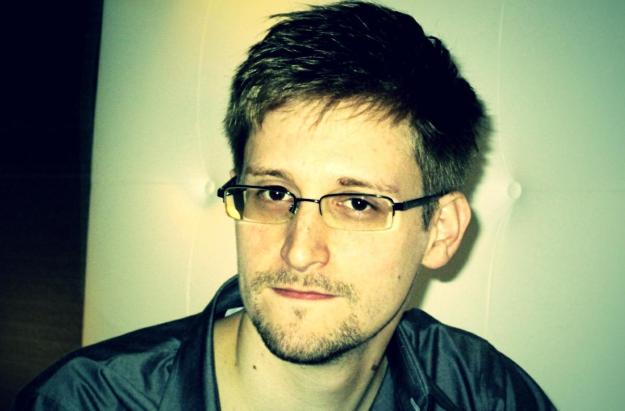
In a live crowdsourced interview at Guardian’s website on Monday, National Security Agency leaker Edward Snowden attempted to clarify statements he made about the U.S. government’s surveillance activities, and defended himself from critics. The interview provides little in the way of revelations about government surveillance, but did give insight into why Snowden did what he did.
Snowden on NSA spying, tech company denials
Snowden, a former contract systems administrator for the NSA and other U.S. agencies, answered 18 out of the hundreds of questions submitted to the Guardian’s website and on Twitter, during the 90-minute Q&A. Replying through a secured Internet connection from his hideout in Hong Kong, the 29-year-old stood by his claims that, in his role at the NSA, he could “wiretap anyone,” and derided the policy limits on surveillance as inadequate to protect the privacy of innocent people.
“U.S. persons do enjoy limited policy protections (and again, it’s important to understand that policy protection is no protection – policy is a one-way ratchet that only loosens) and one very weak technical protection – a near-the-front-end filter at our ingestion points,” said Snowden.
“Ask yourself: if I were a Chinese spy, why wouldn’t I have flown directly into Beijing? I could be living in a palace petting a phoenix by now.”
Snowden further stated that the “identical, specific language” used by technology companies to deny that the U.S. government has wholesale access to their users’ communications proved “they were misleading” the public, but said that we are beginning to learn more about the U.S. government’s surveillance practices.
“As a result of these disclosures and the clout of these companies, we’re finally beginning to see more transparency and better details about these programs for the first time since their inception,” he said.
Snowden on Snowden
Of course, Edward Snowden himself has become as much of a story in the press as the NSA’s surveillance activities. Almost immediately after outing himself as the source of leaked NSA documents to the Washington Post and Guardian newspapers, critics began questioning Snowden’s decision to flee to Hong Kong, a Chinese territory, rather than Iceland, where he said he hoped to find asylum. Now we have an answer.
“Unfortunately, the mainstream media now seems far more interested in what I said when I was 17 or what my girlfriend looks like.”
In a separate question, Snowden dismissed accusations that he would provide classified documents to the Chinese government in exchange for asylum in that country as a “predictable smear.”
“This is a predictable smear that I anticipated before going public, as the U.S. media has a knee-jerk ‘RED CHINA!’ reaction to anything involving HK or the PRC, and is intended to distract from the issue of U.S. government misconduct,” he said.
“Ask yourself: if I were a Chinese spy, why wouldn’t I have flown directly into Beijing? I could be living in a palace petting a phoenix by now.”
Snowden further reiterated that he has “had no contact with the Chinese government,” and that he only works with journalists. He also justified his decision to leave the U.S., saying that the government has “predictably destroyed any possibility of a fair trial at home” by “openly declaring me guilty of treason.” The U.S. government has not officially declared its stance on Snowden, though a number of lawmakers have called him a criminal and a traitor.
While Snowden remains in hiding – rather than behind bars – he says that he is currently dissatisfied with how the public debate surrounding his leaks has unfolded.
“Initially I was very encouraged,” he said. “Unfortunately, the mainstream media now seems far more interested in what I said when I was 17 or what my girlfriend looks like rather than, say, the largest program of suspicionless surveillance in human history.”


